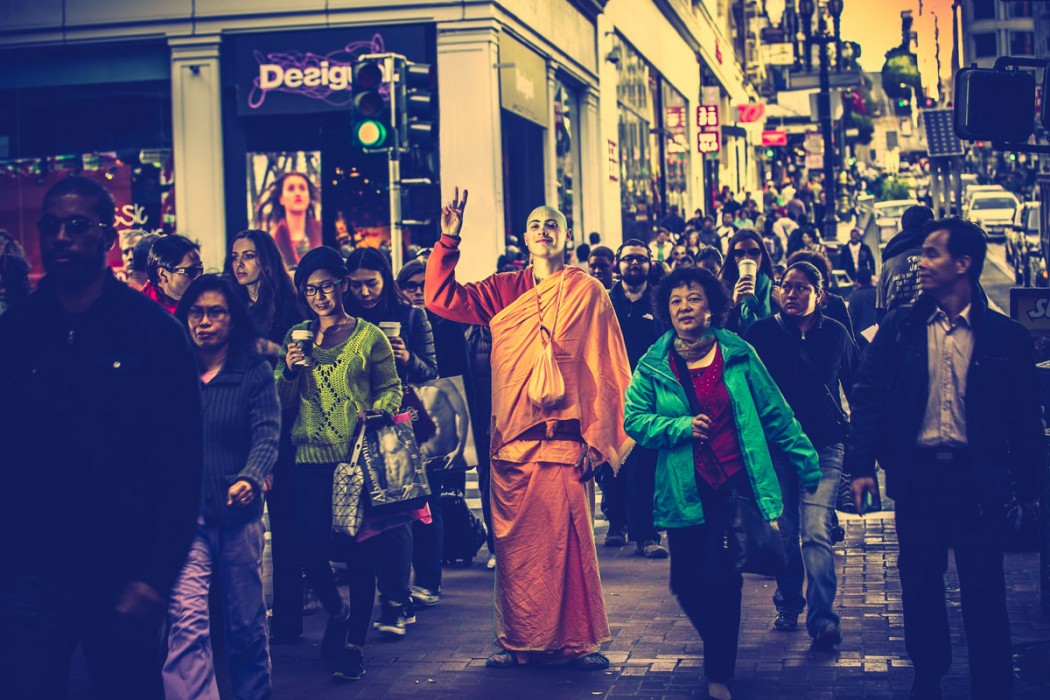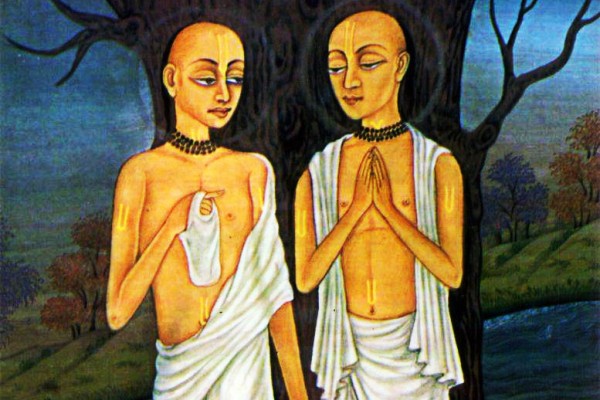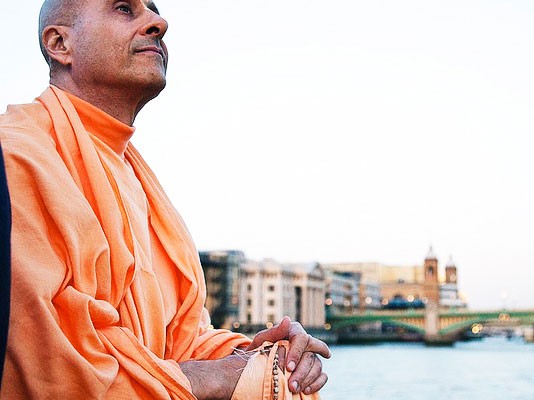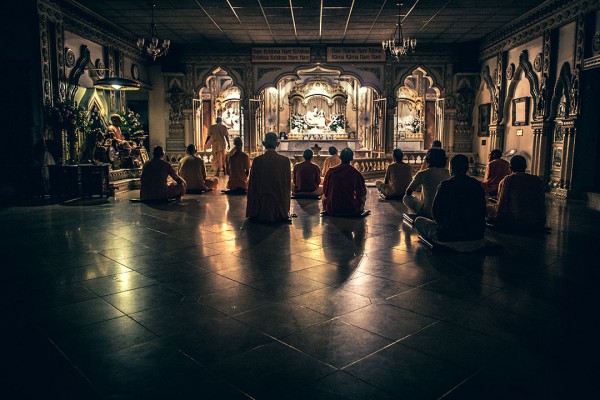ETYMOLOGY OF THE WORD “DEMOCRACY”
In popular historical accounts the word democracy was first used in ancient Greece to denote a contemporary system of governing. In ancient Athens, the word democracy was a compound term which could be broken into two parts: demos meaning ‘people’ and kratein ‘to rule.’ This ideal of governing inspires us even today. Democracy echoes the ancient ideals of equality and freedom among the modern governing systems.
Some authors like John Keane (author of Life and Death of Democracy) think that democracy has much older origins. He traces the meaning of the word democracy back to the Mycenaean period, which preceded the rule of Greece in the Mediterranean region. There the word demos (a person) is slightly changed to be pronounced damos. John Keane discovered the word demos in the Sumerian language, where it is pronounced dunu, meaning ‘inhabitants of a designated region.’ In the ancient world many of the different languages enjoyed a greater connection to one another than they do today. That is due to the fact that they all kept close phonetic link to their unifying origin, the prototypic Sanskrit. In Sanskrit or devanagari (lit. “language spoken in the cities of the demigods”) dham means “place.” Dhamu means “one who hails from a particular region.” Kratu implies intellectual ability. Therefore in ancient times, dhemokrat meant to employ the thinking ability of every person and utilize it for the welfare of the total society.
ANCIENT APPLICATION OF DEMOCRACY
How democracy was applied in ancient times can be seen in an incident that is recorded in the Srimad Bhagavatam (10th canto, 89th chapter). When the local king failed to protect one citizen from a disease in the family, the citizen, every time the disease occurred, walked straight into the king’s assembly hall to voice his protest, concern, and demand protection. The king vowed to protect the citizen even at the cost of his own life. Numerous such incidents are described in the Puranic literature, the literature which consists of accounts of the ancient Vedic culture.
When it comes to queens, they were equal to the kings in making decisions. One such example is illustrated by the story (Srimad Bhagavatam 1st canto, chapter 7) of punishment applied to Ashvatthama. When Ashvatthama killed the five sleeping and helpless sons of Draupadi, he was captured by Shri Krishna and Arjuna. When Krishna and his friend were determined to kill Ashvatthama, Draupadi was also consulted for a verdict. Her choice of punishment was much milder and considerate of the mother of Ashvatthama; therefore, Shri Krishna only disgraced Ashvatthama.
As long as there was true princely order, the aristocracy (kshatriyas), the citizens were protected. But the moment the kings became corrupt, the people decided to take the reigns of power into their own hands. In ancient Athens, democratic votes were given every day. Whenever there was a predicament, all the people discussed the situation. For this reason the governments constructed large places for congregation. Every citizen had a turn to rule the city at some point in their life; a big city being considered to be a village of 10,000 people, which made the application of democracy easier. In Manu Samhita and Shukra Niti it is noted that an ideal city should not exceed a population of 56,000.
DEMOCRACY IN MODERN TIMES
What is the situation today? We live in gigantic conglomerates. The idea of democracy is stronger than ever in our modern world. But although it may be one of the most used words in political accounts and discussions, democracy remains an elusive dream when it comes to practical application.
Words have vast power in today’s world of the variegated media. Words in the form of information rule the world today; they change and shape the global perception of each generation. When we hear “democracy” we think equality and freedom. But there are many different forms of democracy and all of them are meant to discourage the straightforward practice of control by the people.
DIFFERENT FORMS OF APPLYING DEMOCRACY
In representative democracies, the people elect a few candidates amongst themselves and those representatives run in an election. The problem with representation is that not all people in the population of a country are politically active and only the political parties elect representatives. Many end up voting for candidates they do not like or do not identify with. In this form of democracy the president is not able to stand for all the views and wants of all the citizens at large. The main reason is because in this form of democracy the rule is wielded by the majority. This situation creates an oppressed minority. The oppressed minority acts in opposition to the elected representative. Because the opposition wants a share in the decision making process, a situation is created in which a consecutive election is inevitable. Thus no one remains on top of the political game for too long. No president has enough time to solve the major problems concerning his country and the world. Most presidents come to power, enrich themselves for their term of four or five years and then go away for the next elected “leader” to come along and repeat the performance.
Because the representative democracy, depending on the winner amongst the two leading parties, is inevitably partisan to their own party’s agenda, some societies employ another type of democracy called parliamentary. In this form of democracy, there is an extended representation of the citizens in the form of a parliament. In the parliament, all major political parties in a country have their representatives. The parliament has the right to vote against the decisions of the prime minister and the president. Although this is a better version of democracy than the representative democracy, it is noteworthy to mention that an ordinary person has little or no access to the parliamentary decisions. The high officials who supposedly represent the citizens are sitting in big chairs behind many closed doors. Their cabinets have high security alarms and the so-called “representatives” are virtually inaccessible to the ordinary citizens. Hence, the fellow on the street has a tough time influencing the decisions of the parliament.
Although the deputies are supposed to represent the opinions of the people, they have their own political agenda. Often politics and corruption go hand in hand. On the surface, parliamentary democracy may seem fairer than other forms of democracy but in practice it does not provide better results. This form of democracy is confusing to the general public. The ordinary citizens are deceived to believe that they personally take part in the government via their representatives. In fact, the chosen few in the parliament are only looking after the citizen’s interests in theory. In this unfair form of democracy only a chosen few can truly represent themselves and those few are the deputies in the parliament. When the citizens realize that nobody is truly looking after them, they do not know how to overcome this social imbalance.
In general, society reacts to corruption by exposing the culprits. However, the ones who want to fight for their rights by bringing about a revolution in society, lose track of priorities. They start by looking into the lives of the alleged high personas, and end up popularizing their mistakes. They do this by focusing on the flaws themselves instead of developing a pragmatic alternative for people to follow. Although they have good intentions to make a change, it ends up backfiring; the freedom fighters inspire society to follow the same path of corruption as the ones in charge instead of following a higher standard.
Some countries prefer another form of democracy called presidential. In this form of democracy the president has the right to oversee the work of the government. His power is close to that of a king because he can interfere with all decisions made by the administration. The problem with this democracy is that the president is elected through one political party. He is supposed to be without bias and represent all political parties equally. In practice this is impossible because the president is always loyal to the party that promoted him. But a perfect ruler is not created in one or two days and he does not rule a country for one or two terms for a limited number of years. A real well-wisher of all citizens is born as a king and trained since birth to follow dharma. Thus the problem with the presidential democracy is that the imposed leader ends up being a mere panderer in the hands of certain powerful political parties or corporations.
In some countries there is semi-presidential democracy where the prime minister and the president have equal powers and are supposedly checking and correcting each others’ errors. The problem here is that the president and the prime-minister go into endless error fining. Instead of working constructively and solving real problems like tax, poverty line, employment, and medical care, they only add new meanings to political correctness.
Since all democracies in the above list have failed to properly represent all citizens, political masterminds have made one last attempt to make democracy work by using the power of law. Supposedly, in the face of law, the political parties, the president, the prime minister, and the ordinary citizens are equal. The chains of law, ideally, stop all unfair and underhanded techniques and secure true representation of all citizens. But the problem with liberal democracy is that it does not make the democratic system more workable. In practice, it actually makes the drawbacks of the system legalized.
Finally, to cast the historical mistakes of modern classlessness as iron clad, the last and supposedly perfect form of democracy is created, the constitutional democracy. This democratic system is based on a constitution and it is a derivative of the liberal democracy. The difference is that the constitution is supposed to be permanent while the law can be changed. The problem with the constitutional democracy lies in the truth that the constitution is not a perfect document. It is written at a particular time, which has its own trends, by a handful of people with limited experience. The constitution is a weak call to rewrite the laws of the universe, a task only God can be capable of.
We should also note that democracy cannot possibly represent spiritual equality. Krishna devotees, for example, know the futility of voting for any listed political party because there is no representation for followers of Krishna consciousness. The truth is that if we wait for the mundane world of repeated-birth-and-death type consciousness (samsara) to represent us, those of us who are on the spiritual path will never be heard or noticed. We cannot be apart of a world where selfishness dictates to the majority of representatives, from whichever party they originate.
DEMOCRATIC LOSS OF FREEDOM
Today in the name of democracy, gigantic corporations threaten to swallow even the little remaining freedoms of the ordinary citizens. People have been tricked in the name of democracy into voting away their autonomy. They have sacrificed their free time, the right to drink pure water, the need to breathe fresh air, and to work at home producing their own God-given food. Big businesses assure the people that they do not have to do hard labor because all their needs will be taken care of. The corporations will bottle the water and sell it to the people in pretty containers. They will sell them air purifiers; they will open big supermarkets with all imaginable fruits and vegetables in every season, and they will vend them to the obedient citizens. The human beings do not need to do anything but surrender their freedom and in return they will receive plenty of money to spend back into the system. Though such big corporations create a motherly image, they induce everyone to model their life after their unscrupulous principles. The big corporations console the sleeping souls with the promise that in the next election each citizen can vote for whoever one chooses.
However, every civilian has but one time to vote every four or five years. And even then, many are watching how he, the civilian, exercises his vote. Family members who are politically oriented will also try to sway him into voting for their representative. The company he works for will also try to buy his vote. Around the time of the election campaign, certain faces become famous for a short period of time. They are supposed to be the candidates of the ordinary citizen who usually has never met them in person. There is nothing personal about the aggressive way the candidates approach him from their posters, television, radio, and internet. They talk about themselves and how they are going to solve his problems, but they do not care to personally know the voter. Because the candidates are also ordinary people, it is impossible for them to know every single person who is going to vote for them in the elections. In the aftermath, a person is not counted as an individual but as a vote.
ACHIEVING PERSONALISM THROUGH SPIRITUALITY
Personalism is possible only in spiritual, Krishna consciousness. Shri Krishna, the Supreme Personality of Godhead, knows every single soul in the universe regardless of the size of their body, from an insect to a demigod. It does not matter what form of democracy, monarchy, or patriarchy society adopts. If Shri Krishna is not put in the center, there will always be a failure in the establishment. The system’s principles would stay elusively in the realm of idealism. Democracy is theoretically a very good system, but in practice its ideals have been unreachable. On the contrary, Vaishnava philosophy does not claim that everyone is born equal. Every single entity has different karma and has to suffer different consequences in life. Though advocates of democracy claim that vox populi can provide equality, sameness will not exist. A man and a woman have different bodies with different requirements. A person with godly inclinations is also not equal to a person with demonic propensities. People have to be treated according to their individual karma, their respective characters, and their goals in life.
Real equality means to treat every single person according to their situation while at the same time providing them with equal possibility for self-realization. This is the goal of the spiritual varnashrama system taught by Shri Krishna (See Bhagavad Gita 4.14).
SPIRITUAL-AGRARIAN LIVING IS FREEDOM
The varnashrama principle is “simple living and high thinking” because it relies on the resources of nature. Self-sufficiency, which is a normal consequence of agrarian living, is the key to freedom. Freedom is not possible if a single person is dependent on countless individuals; as it is the situation in the modern world. For example, we would be surprised to learn how many people handle the distribution of electricity before it reaches the consumer. How many individuals have been engaged in producing the devices which allocate the electricity, and how many devices are there that receive the electricity? How many people handle the bureaucratic side of electric distribution? How many people handle the invoices? Before someone receives a single kilowatt-hour of electricity, countless people have participated in its production. On the contrary, agrarian community makes the individual dependent on a small and intimate community, but mainly on their family. In this way the family becomes the basic unit of society.
Today families are being destroyed by the artificial dependency on technology. Technology dooms human relations and destroys the feelings associated with human interaction. In modern society new psychological diseases are on the rise. We cannot disregard the fact that human beings are mainly emotional creatures. And despite the fact that in modern society all material needs may be met, the need for emotional security is not. The original position of the living entity is to find his close relationship with the Supreme Lord Shri Krishna. All other relationships are based on this fact. Reviving our lost relationship with Krishna is the most comprehensive way to solve emotional disorientation. Democracy can be a manifestation of a confusion regarding our innate need to be close to another, to be close to the Supreme.
In the name of democracy we see all kinds of atrocities being conducted by the big powers of the day. The large and powerful establishments force others into becoming democratic in the name of consumerism, which they control.
The need of the hour is that we try to entrench ourselves in secure situations. We need to own land, grow our own food, and we need to develop small communities which will grow to enact the vision of self-sufficient society which gives freedom and equality to all individuals to love God, our common source. Then the utopia of direct democracy (when everyone’s desires, opinions and rights are fully counted) can be accomplished.
The futility of democracy at work: American elected officials check sports scores, visit Facebook, or play video card games while the Speaker of the House addresses the “dignitaries.”






R.Singh
Srila Prabhupada: Formerly there was one viceroy. Now in each state three dozen viceroys, and you have to maintain that. So many legislators, so many secretaries, so many ministers. All, they are sucking our poor blood. That’s all. Hare Kṛṣṇa. [Morning Walk — September 29, 1975, Ahmedabad]
Mayans Goel
It’s a well researched and really a well written article containing everything, history, economics, sociology, philosophy, etc. in addition to the spiritual aspect. It’s therefore, complete…